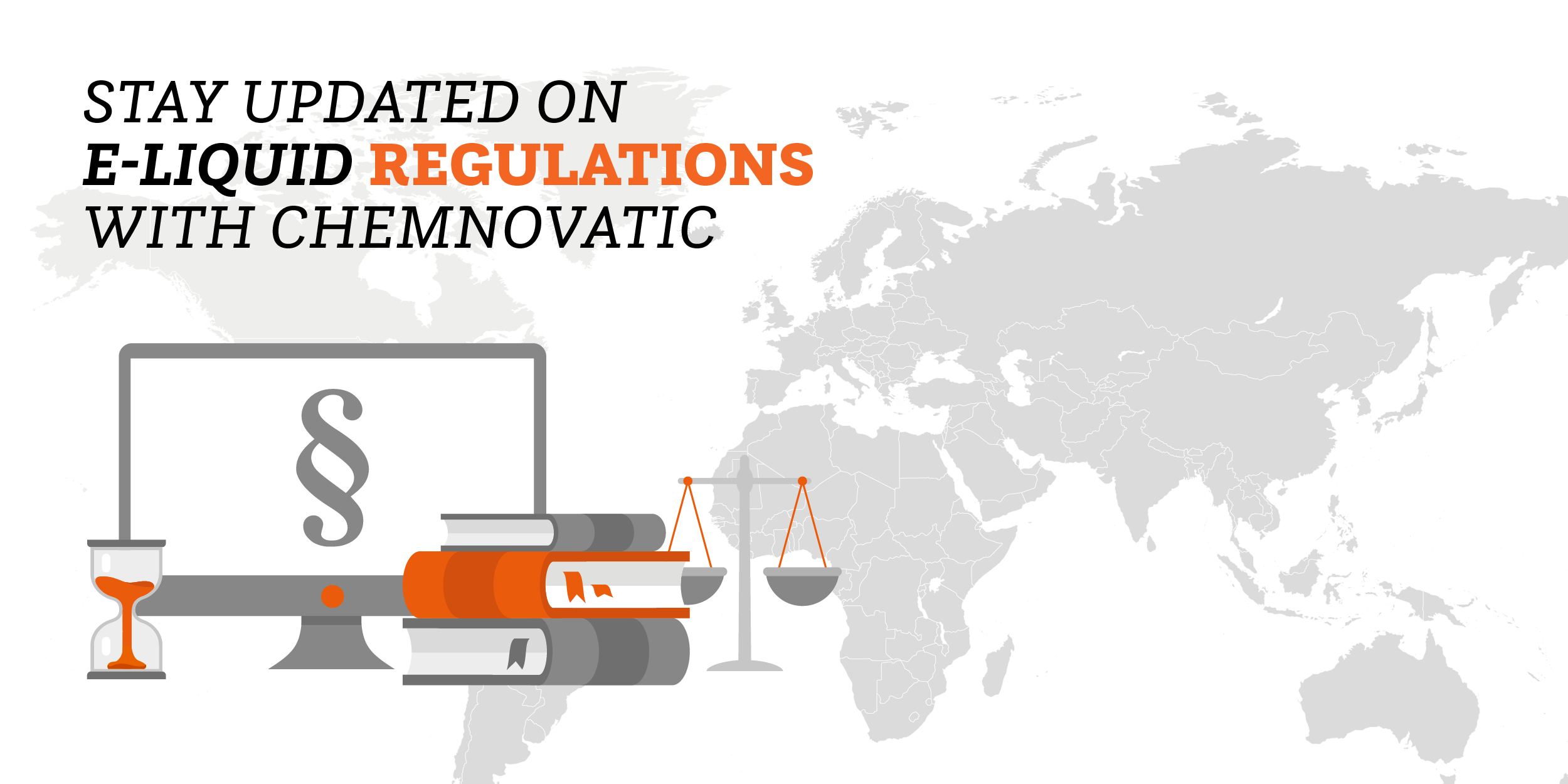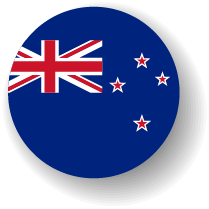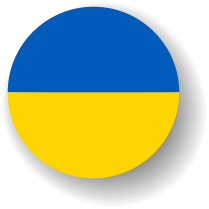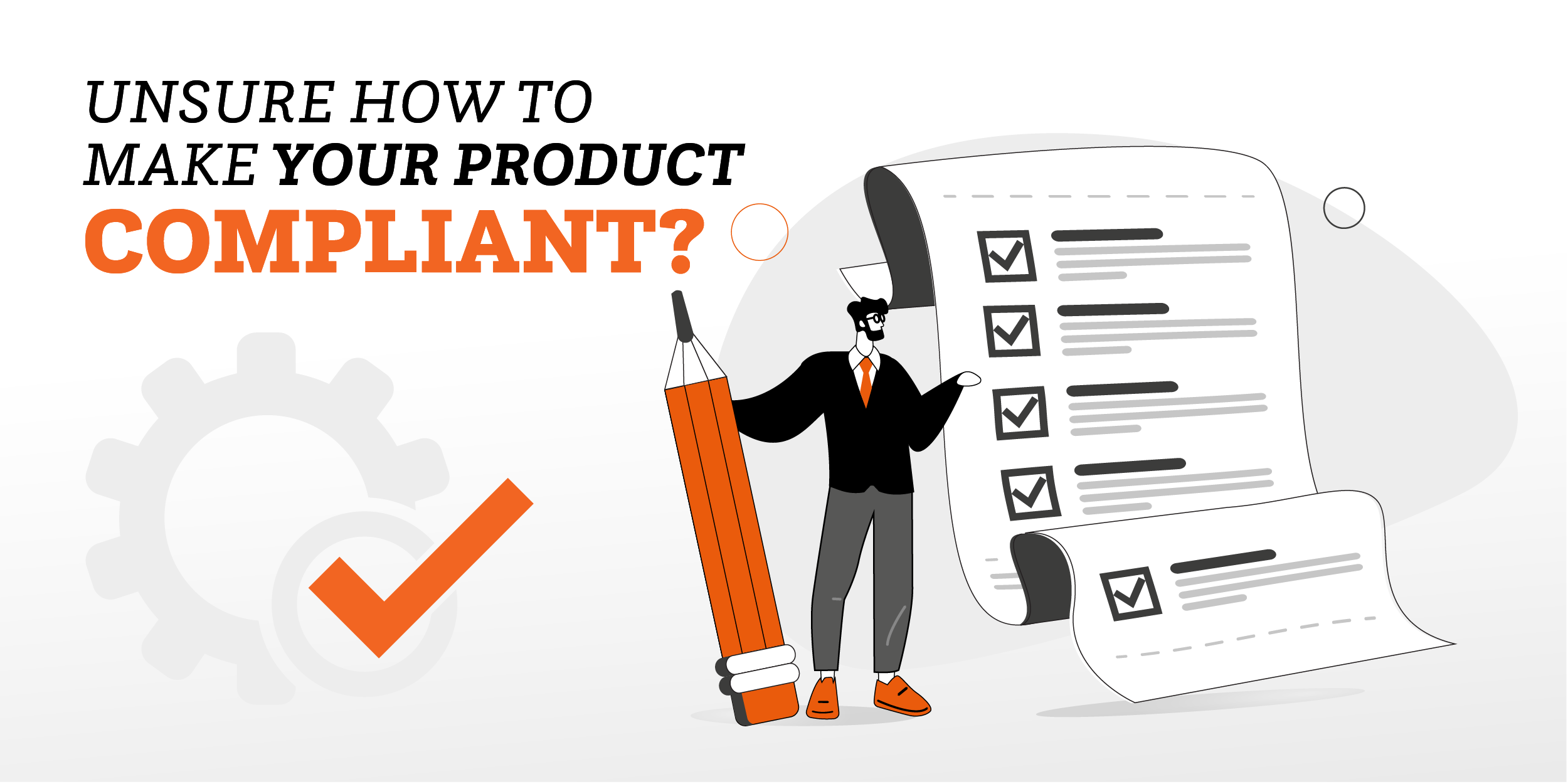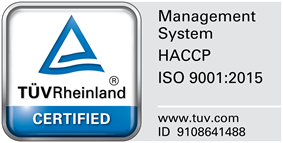E-liquid Regulations: Current And Future Laws & Bans In The World
Since the vape industry is changing dynamically, manufacturers have to always be one step ahead when it comes to trends, but also regulatory aspects that vary widely across the world. Each country has adopted its own laws concerning tobacco and vape products. Chemnovatic specialists have gathered it in a convenient summary of key information. Below you will find the most important information concerning e-liquid regulations, vape flavour bans, restrictions, and trends for the vape industry in selected countries.
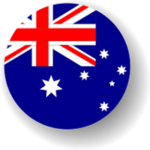
E-Liquid Regulations In Australia
- Nicotine-free vaping products are legal
- Nicotine-containing vape products are illegal. Possession of such may result a fine or imprisonment for up to 2 years
- Since 1 October 2021, to legally posses nicotine in Australia, one needs a medical prescription. It is allowed only for therapeutic (nicotine replacement therapy) purposes
- Sales of nicotine containing products by retailers, even with prescription, is forbidden. They may be sold only in stationary or online pharmacies
- Therapeutic nicotine products must be approved by the TGA – Therapeutic Goods Administration
- Importing or purchasing nicotine-containing vaping products from foreign websites, without a valid prescription, is illegal. A seller should place a copy of such prescription inside the parcel, so it can pass the border control
- Learn more about the consequences of regulations on e-liquid industry in Australia
- To see upcoming restrictions in Australia check down below.
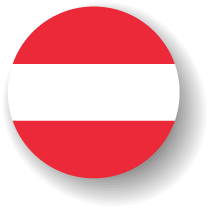

Vaping Regulations in Austria
- Nicotine-free liquids: have to be notified, same as the nicotine-containing ones
- Prohibited e-liquid flavours: none, but the product name can not contain a food name, i.e. watermelon
- Notification fees: none
- Excise tax / export tax: none
- Annual fee: paid till 30 June, 0,4 cent per 10 ml
- Label language: German
- Serial number on the packaging: obligatory
- List of ingredients on the packaging: obligatory (given CLP and trade secret)
- Peel-off label: allowed
- CBD products: nicotine e-liquids cannot contain CBD; nicotine-free liquids with CBD are allowed, but have to be registered
- Nicotine pouches: currently unregulated
- The Tobacco and Non-Smokers Protection Act (TNRSG) provides for a ban on certain substances in e-liquids in Austria. A list of prohibited substances has been drawn up to clarify the legal requirements and appeared at the end of June 2023. To see the whole list click here.


E-Liquid Regulations In Belgium
- Flavours banned: none
- Notification and modification fees: currently: 165 EUR for notification and modification each, 125 EUR for an annual report;
- Tax: none
- Label language: French, German, Dutch
- Serial number on the packaging: obligatory
- List of ingredients on the packaging: obligatory for allergens, ingredients above 0,1% (given CLP and trade secret); obligatory information if an aroma is natural
- Peel-off label: allowed, if in 3 languages
- CBD: not allowed in nicotine-containing e-liquids; tolerated in nicotine-free e-liquids; since 11.07.2023 also banned in nicotine-free e-liquids
- Since January 1, 2024, excise taxes on both nicotine and non-nicotine e-liquids have been implemented in Belgium.
- To see upcoming restrictions in Belgium check down below.

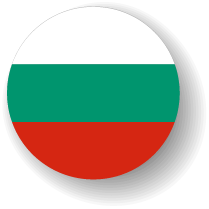
Vape Regulations in Bulgaria
- Nicotine-free liquids: do not have to be notified
- Prohibited e-liquid flavours: none, but the product name can not contain a names or pictures of foods
- Notification fees: none
- Excise tax / export tax: 0,18 BGN/ml since 1 March 2023; 0,25 BGN/ml since 1 January 2024; 0,35 BGN/ml since 1 January 2025
- Label language: Bulgarian
- Serial number on the packaging: obligatory
- List of ingredients on the packaging: obligatory (given CLP and trade secret)
- CBD products: unregulated with TPD
- Nicotine pouches: unregulated with TPD
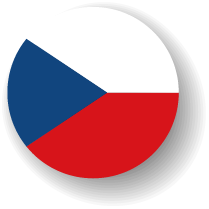
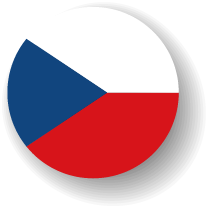
E-Liquid Regulations In The Czech Republic
- Nicotine-free liquids: are TPD-subject (premix and longfills included)
- Prohibited e-liquid flavours: none
- Products classified as highly toxic in category 1 and 2, such as 20mg/ml nicotine salt nicshots can’t be sold to customers
- Notification fees: none
- Label language: Czech
- Serial number on the packaging: obligatory
- List of ingredients on the packaging: obligatory for allergens, ingredients above 0,1% (given CLP and trade secret)
- Peel-off label: allowed
- CBD products: forbidden
- Nicotine pouches: currently unregulated
- Read more about the nicotine pouches market in the Czech Republic
- To see upcoming restrictions in the Czech Republic check down below.
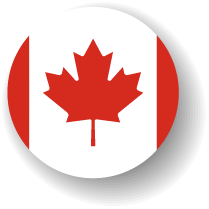

E-Liquid Regulations In Canada
- In June 2021 the Federal Government proposed to prohibit flavors other than tobacco, menthol, and mint, it came to life in late 2022
- 4 provinces already banned flavours other than tobacco: Nova Scotia, New Brunswick, Northwest Territories, Prince Edward Island
- A similar law will come to life in Nunavut, but the date is not set yet
- Sales of flavoured e-liquids is restricted to special, age-restricted vape shops in 3 provinces: British Columbia, Ontario, Saskatchewan
- Quebec: Health Ministry bans flavoured vaping products from October 31 2023. This prohibition extends to selling vaping products and introduces new regulations, including limiting nicotine concentration and enforcing detailed labeling requirements.
- Check report about vaping in Canada [Survey Report]
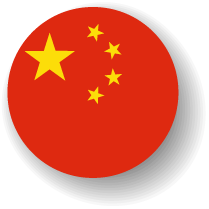
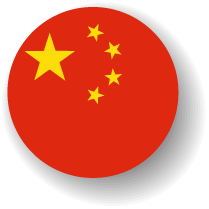
Vaping In China
- The tobacco sector’s authority is State Tobacco Monopoly Administration
- Retailers must sell their products through a national, unified platform for e-cigarettes
- E-cigarette manufacturers can carry out sales of their products only through authorized channels
- Since October 1, 2022, sales of flavoured, other than tobacco, e-liquids is prohibited
- From November 2022, there are new taxes: 36% – production or import of e-cigarettes; 11% – wholesale distribution of e-cigarettes
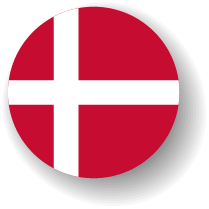

E-Liquid Regulations In Denmark
- Flavours: banned in both nicotine e-liquids and non-nicotine e-liquids
- Only tobacco and menthol flavours are allowed
- The transition period for products already on the market ended on 1st April 2022
- Notification fees: 15 000 DKK (1250 DKK per month) per product and is due for payment every year
- Tax: 2,00 DKK per milliliter
- Label language: Danish
- Serial number on the packaging: obligatory
- List of ingredients on the packaging: full list is obligatory (given CLP and trade secret)
- Peel-off label: allowed
- Learn more about current e-liquid law in Denmark
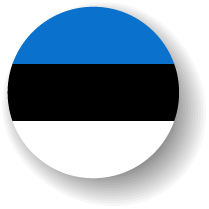

E-Liquid Law In Estonia
- Flavours: banned in both nicotine e-liquids and non-nicotine e-liquids
- Only tobacco and menthol flavours are allowed
- Find out more in the Tobacco Act
- Notification fees: none
- Tax: 0,2 Euro / ml for both nicotine and non-nicotine e-liquids
- Label language: Estonian
- Serial number on the packaging: required
- List of ingredients on the packaging: specific chemicals above and below 0,1% concentration, that affect the classification of the final mixture, must be notified (given CLP and trade secret)
- Peel-off label: allowed with all the necessary information, must be irremovable
- CBD products: non-nicotine liquids need to be registered
- Nicotine pouches: falls under TPD legislation, but does not need to be notified
- Non-nicotine flavourings for shisha: need to be notified


E-Liquid Industry In Finland
- Flavours: banned in both nicotine e-liquids and non-nicotine e-liquids
- Only tobacco flavour is allowed
- Learn more here
- Notification fees: 150 EUR per product, annual fee – 75 EUR
- CBD products: falls under the drug laws
- Nicotine pouches: treated as pharmaceutical products
- Smoking and vaping are prohibited in public spaces like beaches or playgrounds, more details here
- Logo or image-containing packaging were allowed till the end of April 2023, after that a unified design is obligatory
- To see upcoming restrictions in Finland check down below.
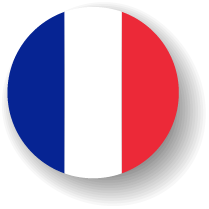

E-Liquid Regulations In France
- Prohibited e-liquid flavours: none
- Notification fees were canceled on 1 January, 2020. They were 295 EUR, per product registration, annual fee 120 EUR for one product.
- Tax: none
- Label language: French
- Serial number on the packaging: required
- List of ingredients on the packaging: full list is required (given CLP and trade secret)
- Peel-off label: allowed
- CBD products: allowed, but not advertised as products with therapeutic features
- To see upcoming restrictions in France check down below.
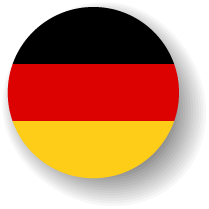

E-Liquid Law In Germany
- Nicotine and non-nicotine products: are TPD-subject
- Prohibited e-liquid flavours: none, but there is a list of substances that e-liquids cannot contain
- Notification fees: none
- Tax: since 1 July 2022 till 31 December 2023 – 0,16 euro / ml
- Read more about e-liquid regulations in Germany
- Label language: German
- Serial number on the packaging: required
- List of ingredients on the packaging: don’t have to be notified if below 0,1% (given CLP and trade secret)
- Peel-off label: allowed if all the necessary information is present
- CBD products: allowed, but not advertised as products with therapeutic features; TPD-subject
- Nicotine pouches: considered as a food product, thus not TPD-subject
- Heated tobacco products: a new way of producing heated tobacco products was introduced in which they are considered natural tobacco products; additionally they’re included in the prohibition of the use of characterizing flavors; amended on July 7th 2023 by the German Tobacco Act, coming to life from October 23rd 2023
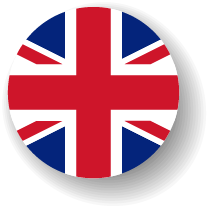

E-Liquid Regulations In UK
- Prohibited e-liquid flavours: none
- Notification fees: notification fee – 150 GBP per product, annual fee – 80 GBP per product
- Label language: English
- Serial number on the packaging: required
- Peel-off label: allowed
- CBD products: liquids with nicotine cannot contain CBD; CBD liquids without nicotine are legal and should not be notified
- Nicotine pouches: tobacco-free nicotine pouches are not subject to TPD regulation and shouldn’t be notified
- Learn more about what Brexit means for vaping
- There is a potential ban on the sale of disposable electronic cigarettes due to health concerns for children and teenagers. The ban is currently under consideration by the Department of Health and Social Care, the Department for Education, and Technology, but no official decisions have been made yet.
- The UK government is set to ban disposable vapes. This initiative, as a part of a broader strategy, includes restrictions on flavors, display regulations, and fines for illegal sales to minors. The government aims to establish a smoke-free generation (for individuals born in 2009 or later), supported by funding £30 million annually for enforcement agencies and widespread public backing for the ban.
- The government plans to introduce a new Vaping Products Duty starting October 1, 2026, with registrations opening from April 1, 2026. The duty rates will be £1.00 per 10ml for nicotine-free liquids, £2.00 per 10ml for liquids containing 0.1-10.9mg of nicotine, and £3.00 per 10ml for liquids containing 11mg or more per ml. Additionally, there will be a one-time increase in tobacco duties, as announced during Budget 2024. However, it’s important to note that these proposals are not yet finalized.
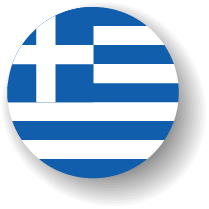

Vaping Law In Greece
- E-liquids: require registration if sold in set a vaping device
- Prohibited e-liquid flavours: none
- Notification & modification fees: 50 EUR each
- Tax: 0,1 euro / ml for both nicotine and non-nicotine e-liquids
- Label language: Greek
- Serial number on the packaging: required
- List of ingredients on the packaging: full list of ingredients required (given CLP and trade secret)
- Peel-off label: allowed
- CBD products: forbidden
- Nicotine pouches: to be regulated in the future
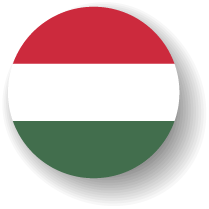

E-Liquid Regulations In Hungary
- Tobacco, menthol, and fruit flavors are allowed – this only applies to nicotine products
- Learn more here
- Notification fees: 475 000 FT per product, annual fee – 475 000 FT; modification fee – 306 000 FT
- Tax: 20 FT / ml
- Label language: Hungarian
- Serial number on the packaging: required
- Hungary proposed new regulations on nicotine pouches and vaping. The new decree defines conditions for placing electronic cigarettes and refill containers on the market, imposes health warnings on nicotine-containing products, outlines rules for nicotine-free products, and establishes guidelines for nicotine-containing smoking substitutes. The decree’s implementation is subject to review and approval by relevant authorities.
- The project could go into effect on 23.10.2023 and would regulate nicotine pouches – they would be subject to registration. There would be a change in the limitation of nicotine concentration to 17 mg/ml. A permit would be issued within 60 days. In addition, the draft proposes other changes for e-liquids, including a new warning slogan on packaging for both liquids with and without nicotine. Moreover, a restriction on flavors in liquids without nicotine is proposed.
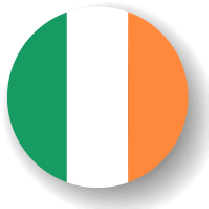
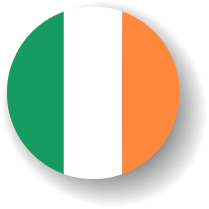
Vaping Law In Ireland
- Prohibited e-liquid flavours: none
- Nicotine-free e-liquids: don’t have to be notified
- Notification fees: none
- Tax: none
- Label language: English, additionally nicotine slogan also in Irish
- Serial number on the packaging: required on a single package
- List of ingredients on the packaging: doesn’t have to be notified if below 0,1%, unless CLP states otherwise (given CLP and trade secret)
- Peel-off: allowed
- CBD products: CBD is forbidden in nicotine-containing e-liquids
- Shisha products: are TPD-subject
- Rejects a proposed vape tax, echoing research suggesting such taxes may raise smoking rates.
- Embraces harm reduction, strict licensing, and educational campaigns in its Public Health Bill.
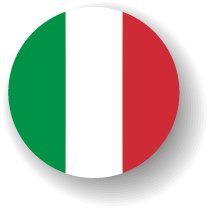
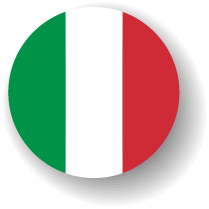
E-Liquid Industry Regulations In Italy
- Prohibited e-liquid flavours: none
- Nicotine-free e-liquids: have to be notified
- Notification fees: since 30 May, 2022 – from €108,03 to €327,85
- Tax: 0,175 euro / ml for nicotine-containg e-liquids and 0,13 euro / ml for nicotine-free e-liquids
- Label language: Italian
- Serial number on the packaging: not required, can be on the label
- List of ingredients on the packaging: everything above 0,1% and every chemical raw material (given CLP and trade secret)
- Peel-off label: allowed
- CBD products: CBD is forbidden
- Nicotine pouches: not regulated
- Tobacco products for shisha: regulated the same way as tobacco products for smoke
- Bans online sale of e-liquids containing nicotine. Customers still can buy the product in physical stores and tobacco shops.
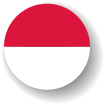
E-Liquid Industry Regulations In Indonesia
- Effective January 1, 2024, a 10% tax on e-cigarettes is enforced as per Minister of Finance Regulation No. 143/PMK/2023
- Regulation No. 191/2022, also effective on the same date, increases tobacco excise rates by 10%, impacting retail prices
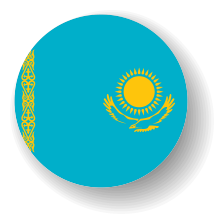

E-Liquid Law In Kazakhstan
- Kazakhstan lawmakers voted to ban the sale, import and export, and production of e-cigarettes and liquids. The legislation follows previous ban of the use of e-cigarettes in public spaces.
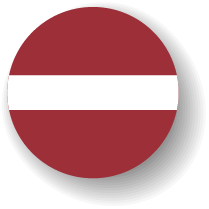

Vaping Regulations In Latvia
- Notification and modification fees: 125,5 EUR for registration and an annual fee 78,49 EUR
- Tax: 0,01 euro / ml of an e-liquid; 0,005 euro / mg of nicotine; taxes sum up
- Label language: Latvian
- Serial number on the packaging: obligatory on a singular packaging
- List of ingredients on the packaging: only the names of aromas / flavourings are necessary
- Peel-off label: allowed
- CBD: not restricted
- To see upcoming restrictions in Latvia check down below.
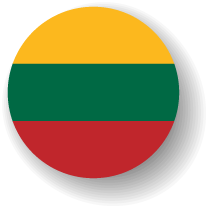
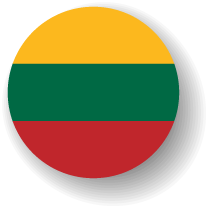
E-Liquid Regulations In Lithuania
- Only tobacco flavours are allowed
- The ban is active since 1 July, 2022
- Since 1 May, 2022, e-liquids are TPD-subject and have to be registered
- Notification fees: none
- Tax: 0,15 euro / ml for both nicotine-containing and nicotine-free e-liquids; 0,19 euro / ml since 01.01.2023; 0,25 euro / ml since 01.01.2024
- Label language: Lithuanian
- Serial number on the packaging: required
- List of ingredients on the packaging: all ingredients (given CLP and trade secret)
- Peel-off: allowed
- CBD: forbidden in nicotine-containing e-liquids
- Lithuania recently passed legislation to ban the import of vape liquids containing added sweeteners or sugar, effective from November 2024. The amendment, passed on December 15th, 2023, prohibits flavored vape products.
- Alongside banning sweeteners, the law also prohibits stimulants, additives implying health benefits, coloring agents, hazardous fragrances, and tobacco flavors. Further regulatory efforts are anticipated, including evaluations on nicotine levels, design, labeling, and retail environment considerations to discourage adolescent adoption while supporting harm reduction for adult smokers.
- You can check the list of allowed substances here.
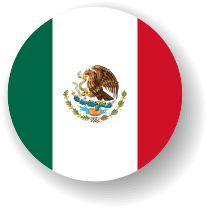

E-Liquid Regulations In Mexico
- Mexico has passed a decree that prohibits the circulation and marketing of electronic tobacco delivery systems, including both vapes and tobacco heaters. A previous general importation and tax law meant that vapes were already illegal to import and sell. Since importation, circulation, and sales are banned, along with vaping itself in many public places, one of the more notable takeaways is not bringing vapes when traveling to Mexico – whether traveling by plane or by car.
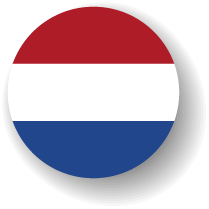

Vaping In The Netherlands
- Read more about flavoured e-liquids banned in the Netherlands
- Notification and modification fees: 44,85 EUR each
- Label language: Dutch
- Serial number on the packaging: should be on the box
- List of ingredients on the packaging: ingredients below 0,1% can be grouped into general aromas’ names, but have to be also on the leaflet
- Peel-off label: allowed
- CBD: not allowed
- Nicotine pouches containing 0,035 mg, or more, nicotine per pouch are banned
- To see upcoming restrictions in The Netherlands check down below.


E-Liquid Law In Northern Ireland
- Prohibited e-liquid flavours: none
- Notification requirements: nicotine-free liquids don’t have to be notified
- Notification fees: notifiction fee – 150 GBP per product, annual fee – 60 GBP per product, modification fee – 80 GBP
- CBD products: liquids with nicotine cannot contain CBD; CBD liquids without nicotine are legal and should not be notified
- Nicotine pouches: tobacco-free nicotine pouches are not subject to TPD regulation and shouldn’t be notified
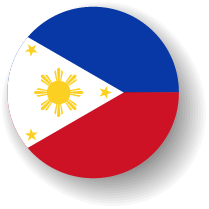
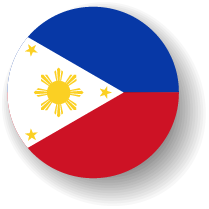
Vaping Regulations In The Philippines
- Find out more in the Republic Act No. 11467
- Only tobacco and menthol flavours are allowed
- Minimum age to purchase: 21 years old
- The Philippines’ Bureau of Internal Revenue (BIR) is tightening regulations on vaping. Importers of vaping materials now need special clearances, part of an effort to bring order to the sector due to its rapid growth. The move aims to regulate components like propylene glycol, vegetable glycerin, flavorings, and nicotine, while also addressing excise tax shortfalls linked to illicit tobacco.
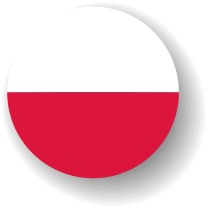

E-Liquid Regulations In Poland
- Prohibited e-liquid flavours: none
- Notification fees: till 2023 – from 1 766,64 PLN to 5 888,80 PLN;
since 2023 – 1 995,82 PLN for micro and small enterprises; 3 326,37 PLN for medium enterprises; 6 652,73 PLN for other enterprises - Tax: excise 0,55 PLN / ml
- Label language: Polish
- Serial number on the packaging: required, and required on the label
- List of ingredients on the packaging: aromas can be divided into natural and sythethic
- Peel-off: allowed
- CBD products: allowed for marketing
- Nicotine pouches: treated as a food product
- Non-nicotine flavorings for shisha: are not TPD-subject and do not need registration
- Learn more about TPD in Poland
- From January 22, 2024, electronic cigarettes and refill containers reported in Poland are subject to fees based on the average monthly salary in the business sector without profit-sharing bonuses. The applicable fees are as follows: for medium-sized enterprises, it is 50% of the starting amount, equal to 3721.64 PLN for each reported ID number; for small and micro-enterprises, it is 30% of the starting amount, equal to 2232.98 PLN for each reported ID number; for other enterprises, it is the full starting amount, equal to 7443.28 PLN for each reported ID number.
- Additionally, the fee for innovative tobacco products reported from January 22, 2024, is 223,298.40 PLN.
- The Ministry of Health is starting work on legal changes aimed at banning the sale of disposable e-cigarettes. The planned ban on the sale of disposable e-cigarettes could be introduced in the coming months – emphasizes Deputy Minister of Health Wojciech Konieczny.
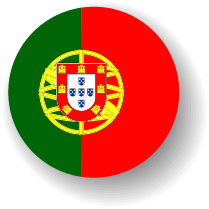

Vaping Regulations In Portugal
- Prohibited e-liquid flavours: none
- Notification fees: 1000 EUR if 10 or more products; 500 EUR if up to 9 products
- Tax: 0,323 euro / ml
- Label language: Portuguese
- List of ingredients on the packaging: all ingredients (given CLP and trade secret)
- Peel-off: allowed
- CBD products: CBD is forbidden in e-liquids
- Nicotine pouches: will be regulated in the future
- Read more about regulations and the Portuguese vape market
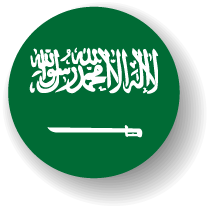

E-Liquid Law In Saudi Arabia
- Only some flavours are banned: cocoa, vanilla, coffee, tea, spices, candy, chewing gum, cola, and alcohol
- Learn more here
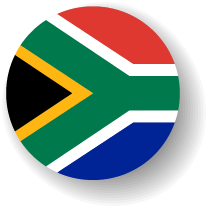

E-Liquid Regulations In South Africa
- The Tobacco Products and Electronic Delivery Systems Control Bill seeks to reduce tobacco use and nicotine dependence. Its key provisions encompass smoke-free areas, banning cigarette vending machines, introducing plain packaging with health warnings, prohibiting display at point-of-sale, and regulating and controlling nicotine and non-nicotine e-cigarettes.
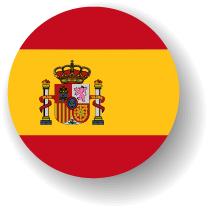

Vaping Law In Spain
- Prohibited e-liquid flavours: none
- Notification fees: none
- Label language: Spanish
- Serial number on the packaging: not required, may be on the label
- List of ingredients on the packaging: doesn’t have to be mentioned if below 0,1%, unless CLP requires it (given CLP and trade secret)
- Peel-off: allowed, but everything has to be legible
- CBD products: forbidden
- Nicotine pouches: tobacco-free nicotine pouches are treated as a medical product
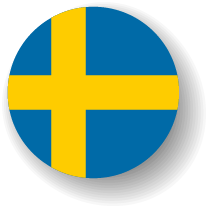

E-Liquid Industry Regulations in Sweden
- Prohibited e-liquid flavours: none
- Notification fees: 10500 SE for notification and 10500 SE for modification
- Tax: 2 SEK / ml up to 15 mg/ml; 4 SEK / mk for 15-20 mg/ml
- Label language: Swedish
- Serial number on the packaging: obligatory
- List of ingredients on the packaging: if 0,1% and above are required (given CLP and trade secret)
- CBD products: forbidden
- Nicotine pouches: currently regulated, since 01.01.2023 are treated as food products
- Tobacco for shisha: is TPD-subject
- Nicotine-free shisha aromas: don’t have to be notified
- From January 1, 2024, new regulations mandate manufacturers and importers to notify the Public Health Agency about each non-tobacco nicotine product.
- Reporting requirements include ingredients, nicotine dose, and sales volume for 2023, with fees of SEK 4,200 per product.
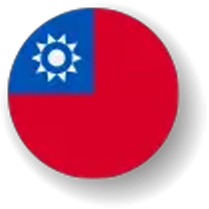
E-Liquid Industry Regulations in Taiwan
- Taiwan has recently enacted the Tobacco Hazards Prevention Act, which regulates the sale, manufacture, and supply of e-cigarettes.
- The legal smoking age for all tobacco products has been raised from 18 to 20 years old
- Warning labels on tobacco products must now cover 50% of the total packaging area, an increase from the previous 35%.
- Childcare centers and schools at all levels are now designated as smoke-free areas.
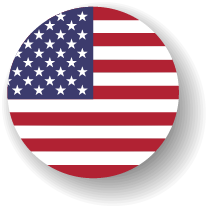

E-Liquid Regulations In United States
- Ban on flavoured e-liquids in states: New York, New Jersey, Massachusetts, and Rhode Island, California, Hawaii, Los Angeles and District of Columbia
- Other states considering flavours ban: among others Texas and New Hampshire
- In Utah flavours, other than tobacco, can be sold in special, age-restricted stores
- A proposed federal bill, the Tobacco Tax Equity Act of 2023, seeks to introduce the first federal tax on vaping products, significantly impacting the vaping industry. If passed, this legislation would impose a tax of $100.66 per 1,810 milligrams (5.5 cents per milligram of nicotine) of nicotine on all tobacco-free nicotine products, making vaping more expensive than smoking cigarettes.
- Starting January 1, 2024, a new Texas law bans the sale of vaping products in packaging displaying cartoons, celebrities, or symbols targeting young audiences.
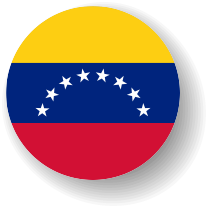

Vaping Law In Venezuela
- Venezuela has issued a comprehensive ban on e-cigarettes and heated tobacco products, including personal use, citing health concerns. The recently published health ministry resolution covers all aspects, from production to consumption, encompassing both nicotine and non-nicotine variants.
Upcoming restrictions
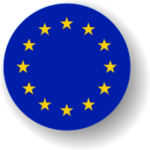
The European Union
- Tobacco Excise Directive (TED): proposal given in the first quarter of 2023.
- Batteries regulations to come, at the earliest, in 2025: no glue use allowed in fixing batteries; the batteries to be removable and replaceable
- The European Commission has proposed revising the EU CLP (Classification, Labeling and Packaging) regulation. There are planned new mandatory formatting rules for labels and exempting small labels (less than 10 ml) from labeling under certain conditions. Additionally, there are new hazard classes to be added.
- Read more
- A new project about enforcement of chemicals regulation in products sold online; online inspections of the sale of chemicals and checking their compliance with REACH; Inspections under this REACH-EN-FORCE (REF)-13 project will take place in 2025
- The European Commission and the European Chemicals Agency are initiating efforts to enhance the safety and sustainability of batteries within the European Economic Area. They intend to identify substances of concern in batteries and propose consistent EU regulations to limit harmful components affecting both health and the environment. Additionally, actions will be taken to establish recycling procedures for used batteries.

Australia
- The government will ban the importation of nonprescription vaping products – including those that do not contain nicotine. The plan introduces ban of disposable e-cigarettes as well. Thus, Australia has set out its plans to ban recreational vaping completely.
- Health Minister Mark Butler considers banning refillable devices, restricting legal options to closed pods with prescriptions. However, concerns linger over the justification for such restrictions, given limited instances of non-nicotine substance use.
- Australia is set to end recreational vaping by enforcing a phased ban on disposable vapes, beginning with an import prohibition from January 1, 2024. The ban will extend to all non-therapeutic vapes, including refillable devices, in March. Additionally, new regulations, effective in 2024, will restrict flavors, nicotine content, and packaging for therapeutic vapes.


Belgium
- Notification and modification fees: currently: 165 EUR for notification and modification each, 125 EUR for an annual report;
since 11.07.2023: 200 EUR for notification, 100 EUR for modification, additional 50 EUR annual fee for each product. Additionally, nicotine-free products must be notified before being placed on the market. - Label: since 11.07.2023 the information about flavour must be described in 1 word
- CBD: not allowed in nicotine-containing e-liquids; since 11.07.2023 also banned in nicotine-free e-liquids
- Nicotine and CBD pouches: The Royal Decree of March 14, 2023, prohibits the marketing of nicotine pouches and CBD pouches.
This Royal Decree goes into effect on July 1, 2023, except for retailers, for whom it goes into effect on October 1, 2023. - Cross-border sales: banned since 11.07.2023
- Since 11.07.2023 the vaping device can not contain any added values (i.e. LED lights), the only function allowed is producing steam for inhalation. Moreover, refills are NOT limited to 10 ml max.
- Products that do not apply to new regulations can no longer be delivered to stores since 11.07.2023, however, they can be sold until 11.01.2024 if they were purchased before 11th July.
- New regulations for e-liquids in Belgium has been proposed: from January 1, 2024, a tax rate of €0.15 per ml and a requirement for excise tax marks on each bottle.
- Manufacturers need a storage permit from customs authorities and must add a “tax mark” on products.
- All existing e-liquids must comply by March 31, 2024, and from April 1, 2024, all e-liquids on the Belgian market must bear the tax mark.
- Belgium will ban the sale of disposable e-cigarettes from January 1, 2025, making it the first EU country to do so, with approval from the European Commission (however, non-disposable e-cigarettes will still be permitted for smoking cessation purposes).
- Smoking will be prohibited in all places, especially those frequented by children and young people, and near healthcare institutions, educational institutions, and libraries within 10m of entrances.
- The ban will extend to professional passenger transportation (cabs, buses) from spring 2024.


The Czech Republic
- Nicotine-free e-liquid: have to be notified. Those present on the market have till the end of October 2023, and the new ones have to be notified right away
- From January 1, 2024 the excise duty on e-liquids is to come into force. The offer is 10 kč/ml for both nicotine and non-nicotine liquids. However, this has not yet been officially approved by parliament.
- Thus, the more lenient plan has been proposed for a gradual excise tax increase over four years time for e-cigarettes and nicotine pouches. Under the plans, these taxes would increase gradually, unlike the original proposal for a one-time increase. For cigarettes, increases of 2.5 + 5.0 + 7.5 + 10 CZK/1 ml cartridge are assumed. For nicotine pouches, on the other hand, the target tax is reduced to 0.4 + 0.8 + 1.2 + 1.7 CZK/g. The transition period, which will allow products to be sold off in accordance with current regulations, is likely to last until the end of September 2024. The final parliamentary approval remains pending.


Finland
- Nicotine-free e-liquid: have to be notified. Those present on the market have till the end of October 2023, and the new ones have to be notified right away
- Nicotine pouches are reclassified from medical devices to tobacco surrogates under TPD regulations.
- The government plans to regulate nicotine pouches more strictly, limiting the nicotine content to 20 milligrams per gram of product.
- Prohibition of flavors that might appeal to young users is planned.
- Retail sales will require licensing, remote sales will be banned, and health warnings will be mandatory on packaging.
- The objective is to replace illegally obtained snus with legally sold nicotine pouches.
- The proposal aims to deter young people from using nicotine pouches.


France
- Plans to ban disposable e-cigarettes until the end of 2023 as part of a new anti-smoking plan the Health Ministry is working on.
- In December 2023 the National Assembly in France unanimously approved a bill to ban single-use disposable electronic cigarettes, citing concerns over youth appeal and environmental impact. The bill, likely to pass in the Senate, could take effect by September 2024.


Latvia
- Non-nicotine liquids will soon have to be registered
- Flavours banned: Starting August 1, 2024, Latvia prohibits the sale of e-cigarette products with additives facilitating nicotine intake, including menthol and its analogues, as per amended Tobacco Law. Manufacturers and importers must cease selling such products by this date, but those on the Health Inspectorate’s list can be sold until then.
- From January 1, 2025, the law further restricts the market by prohibiting e-liquids with flavorings, except for those mimicking tobacco taste or smell. Additionally the composition of tobacco flavouring is to be limited to 16 permitted substances (similar to the Netherlands)
- Nicotine pouches: tobacco-free nicotine pouches to be regulated in the future
- Legal Age allowed to buy and sell tobacco and vape products is to be changed from 18 to 20 years old (from January 1st 2025)
- Plans to implement a yearly excise tax increase averaging 21 percent for e-liquids until 2026.
- Heated-tobacco products and combustible cigarettes will see respective annual rises of 5 percent and 5.6 percent.
- The tax on other “tobacco substitute” products, including nicotine pouches, is expected to increase by 10 percent.
- Proposed excise duty rates for e-liquids: 0.24 euros per milliliter from March 1, 2024, to December 31, 2024, and 0.29 euros per milliliter from January 1, 2025, to December 31, 2025.
- The Tobacco Law amendments in Latvia, adopted on January 11, 2024, and effective from August 1, 2024, prohibit the sale of nicotine products containing inhalation or intake facilitators, including menthol, analogues, and geraniol.
- Starting January 1, 2025, the law further restricts the sale of e-liquids with flavorings, except those mimicking tobacco taste.
- Nicotine pouches must adhere to stringent criteria effective January 1, 2025, including packaging specifications, nicotine concentration limits, and absence of certain additives and stimulants.


The Netherlands
- Flavours, except tobacco, are bnned since 1 October 2023. In reality, the transitional period will last until the end of December 2023 thus the sale of flavored drinks is still allowed.
- From January 1, 2024, only the sale of a tobacco-flavored liquid, which contains only 16 permitted substances, will be allowed.
- Plans to ban nicotine pouches completely. In areas where smoking is illegal, the Netherlands intends to outlaw nicotine pouches and other tobacco-free nicotine products. It also aims to ban tobacco-free nicotine product advertising.
Tracking the regulatory changes
Restrictions and bans on nicotine products are visible worldwide. That is why it is crucial to follow the upcoming changes to adapt to them on time and act according to new regulations.
At Chemnovatic we keep track of all legislative changes in the e-cigarette industry around the world and as one of the first companies related to the industry introduce the necessary changes. Therefore feel free to reach out to us if you need any consultations or advice – just contact us at sales@chemnovatic.com.

Stay informed with e-liquid industry
We promise to only send product launch
information, industry research and valuable articles.





